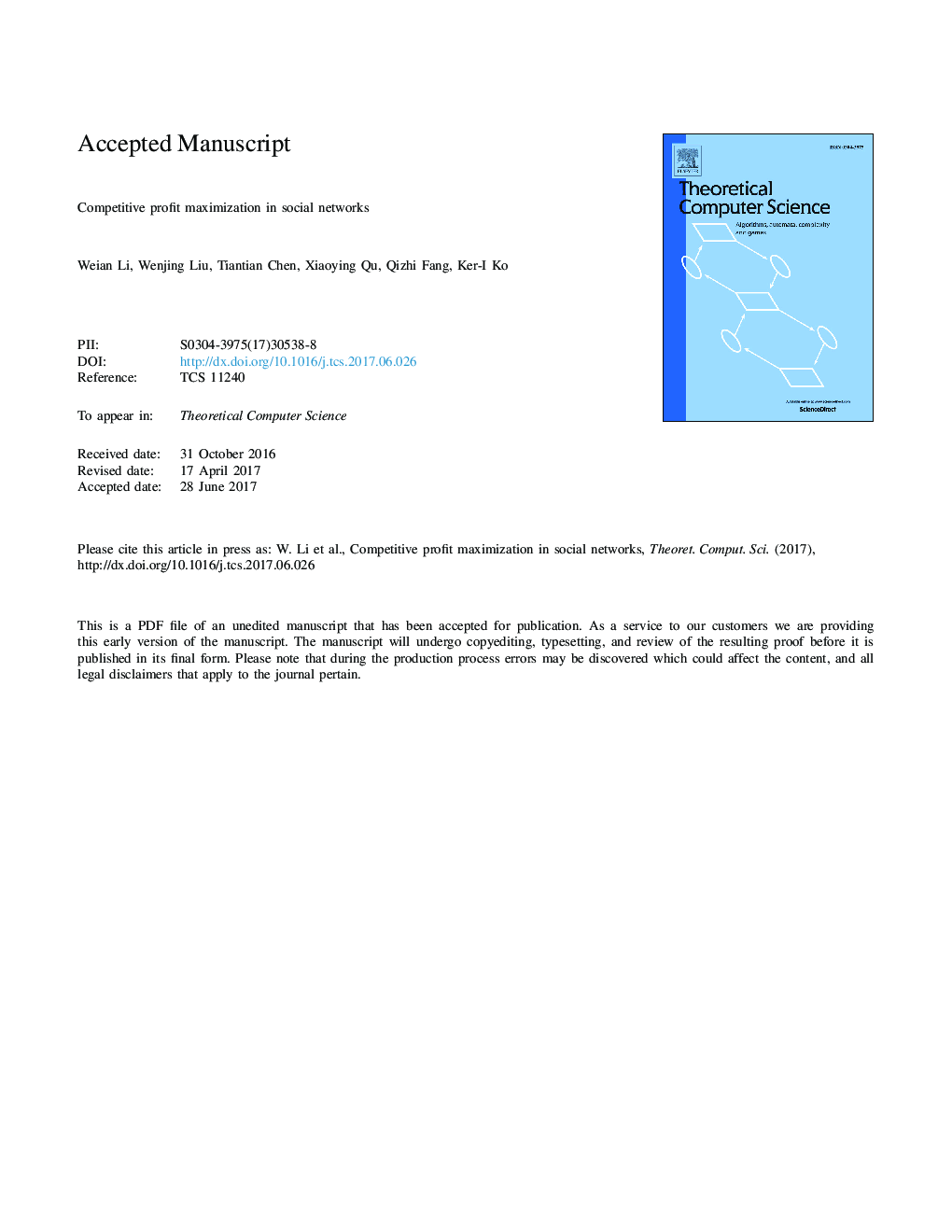| Article ID | Journal | Published Year | Pages | File Type |
|---|---|---|---|---|
| 4951923 | Theoretical Computer Science | 2017 | 14 Pages |
Abstract
We study the competitive profit maximization problem in a social network, which can be viewed as the profit maximization problem in a game-theoretic setting. We formulate two models called the profit maximization-agent (PM-A) game and the profit maximization-society (PM-S) game. By reducing them to be valid utility systems, we show that any Nash equilibrium provides an excepted social utility within a factor 1/2 (subject to a function-dependent additive term) of the optimum in the PM-A game and a factor of 1/2 of the optimum in the PM-S game. Furthermore, for the PM-S game, a polynomial-time algorithm is given for each player that can approximate the best response within a factor (1â1/e).
Related Topics
Physical Sciences and Engineering
Computer Science
Computational Theory and Mathematics
Authors
Weian Li, Wenjing Liu, Tiantian Chen, Xiaoying Qu, Qizhi Fang, Ker-I Ko,
